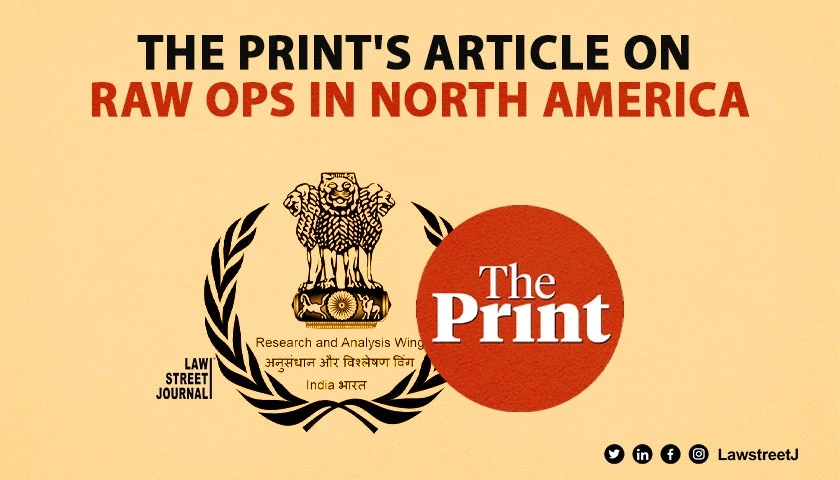NEW DELHI: The Delhi High Court today rejected a public interest litigation (PIL) seeking directions to block an article published by The Print stating that the Research and Analysis Wing (RAW) had shut its operations in North America.
Dismissing the plea, the Court said, "The Government of India has full power and authority to block any article which compromises national safety and security and it requires no advise of either the petitioner or this court... The Court should not easily transgress into this area. The impugned article, in the opinion of this court, prima facie, does not compromise the careers of the officers or puts the life of their family members in any danger," the Court concluded in its order.
The plea by Adv. Raghav Awasthi had sought relief on the ground that the article titled Nijjar-Pannun effect: RAW downs shutters in North America 1st time since inception in 1968 published in The Print on November 30, 2023 puts the life of Indian diplomats and intelligence workers in danger.
He cited information he claimed to have received from someone who works at the Indian High Commission.
However, the Court was not inclined to accept the argument and instead said, "The freedom of press is placed at a very high pedestal. We cannot order for the article to be removed like this.
A Division Bench of Acting Chief Justice Manmohan and Justice Manmeet Pritam Singh Arora held that prima facie the article authored by Praveen Swami, Contributing Editor to The Print does not pose any risk to the lives of the officers family members or compromise their careers in any way.
It further held that the government has enough powers to deal with the issue.
Awasthi had also sought a general direction to stop media houses from publishing source-based information on government officials or diplomats working abroad for the intelligence services, stating that The Print's article was totally source-based.
Awasthi added that he could also reveal the identity of the diplomat who approached him, in a sealed cover.
He further suggested in-camera proceedings to maintain confidentiality.
However, defending the article the bench said that while the article was innocuous, it was Awasthi who was risking the identity of the intelligence officials.
I think you [Awasthi] have identified more people than that (the article). Your source is correct or not, we have no idea," the Bench remarked.
The Court concluded that the PIL was based on "surmises and conjectures" which were in turn based on hearsay.







![Delhi High Court Sets Aside Arbitral Tribunal's Award Against NHAI in Highway Project Delay Case [Read Judgment]](/secure/uploads/2023/07/lj_9605_23374c2e-392c-4491-a2fe-f2f12fc5272f.jpg)
![Delhi Court Rejects Stay Request in Defamation Case Against Rajasthan CM Ashok Gehlot [Read Order]](/secure/uploads/2023/08/lj_5208_80de1ddc-d76a-4f7f-b180-408e3ae14fb4.jpg)








Rameshbabu Feb 19, 2024
Nice decision taken by the Judge.